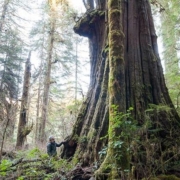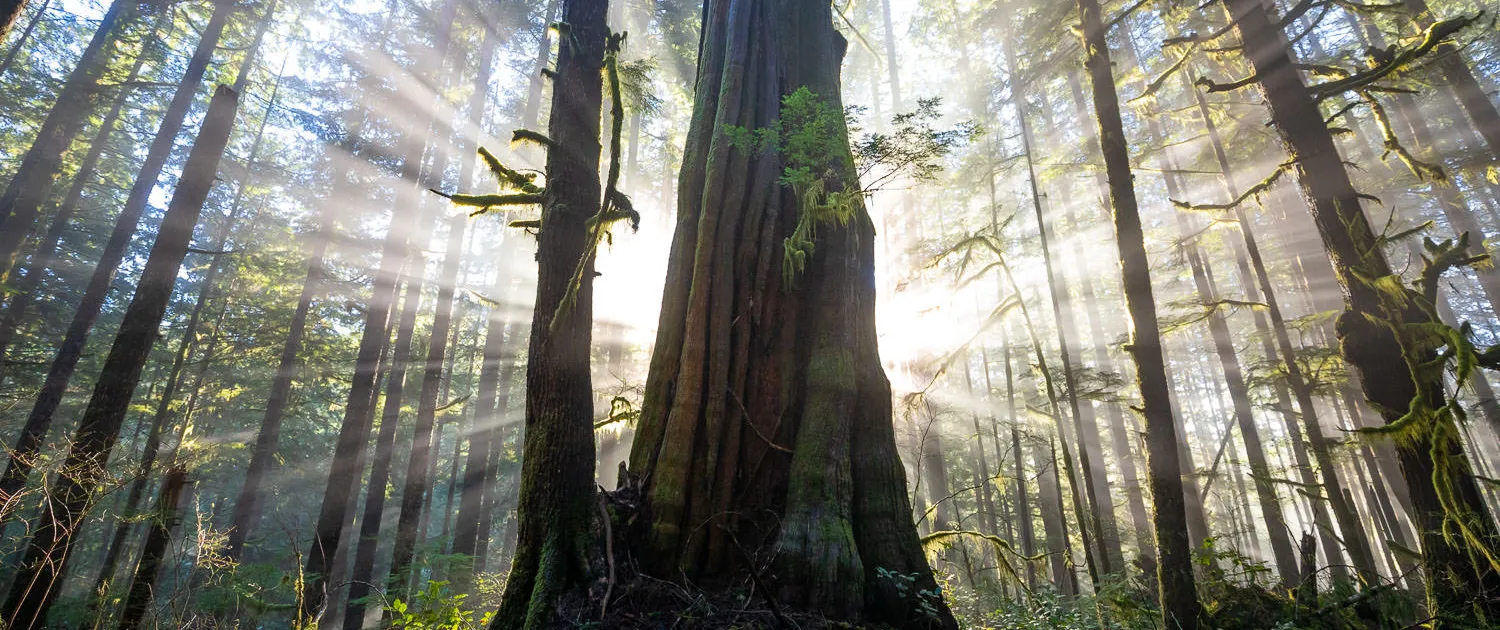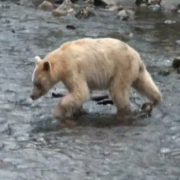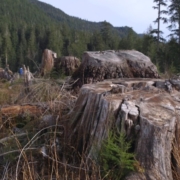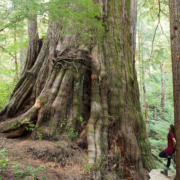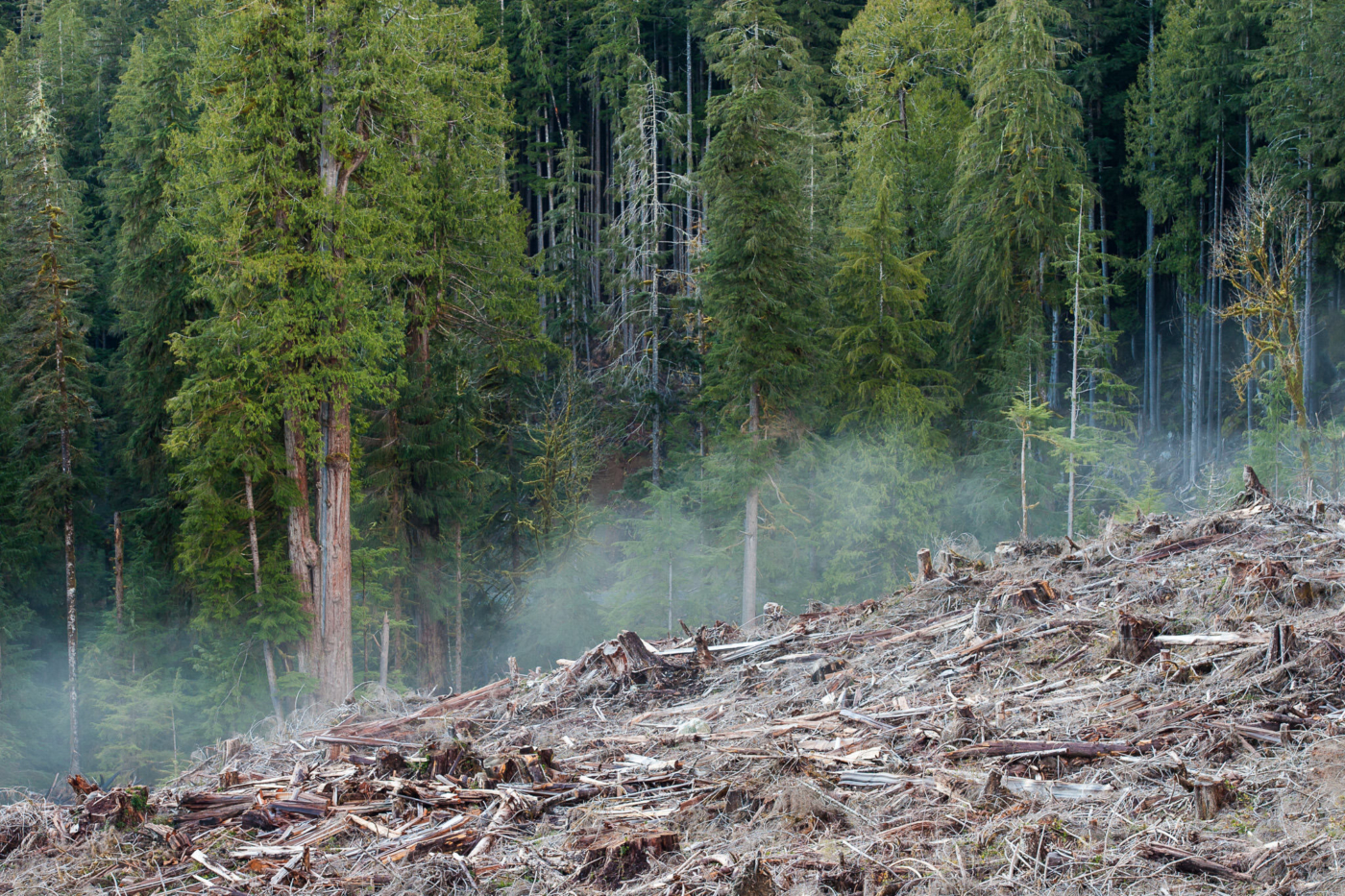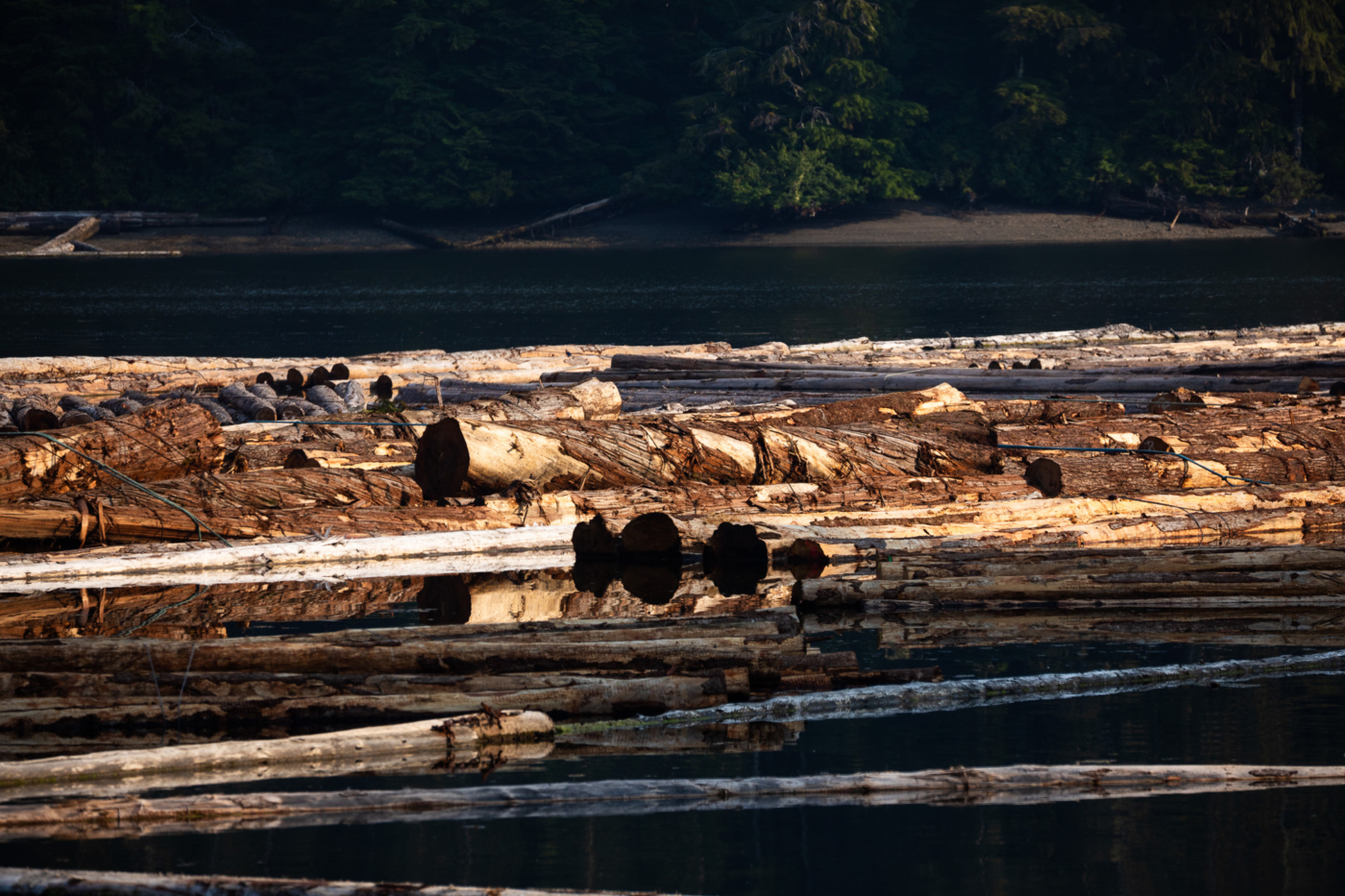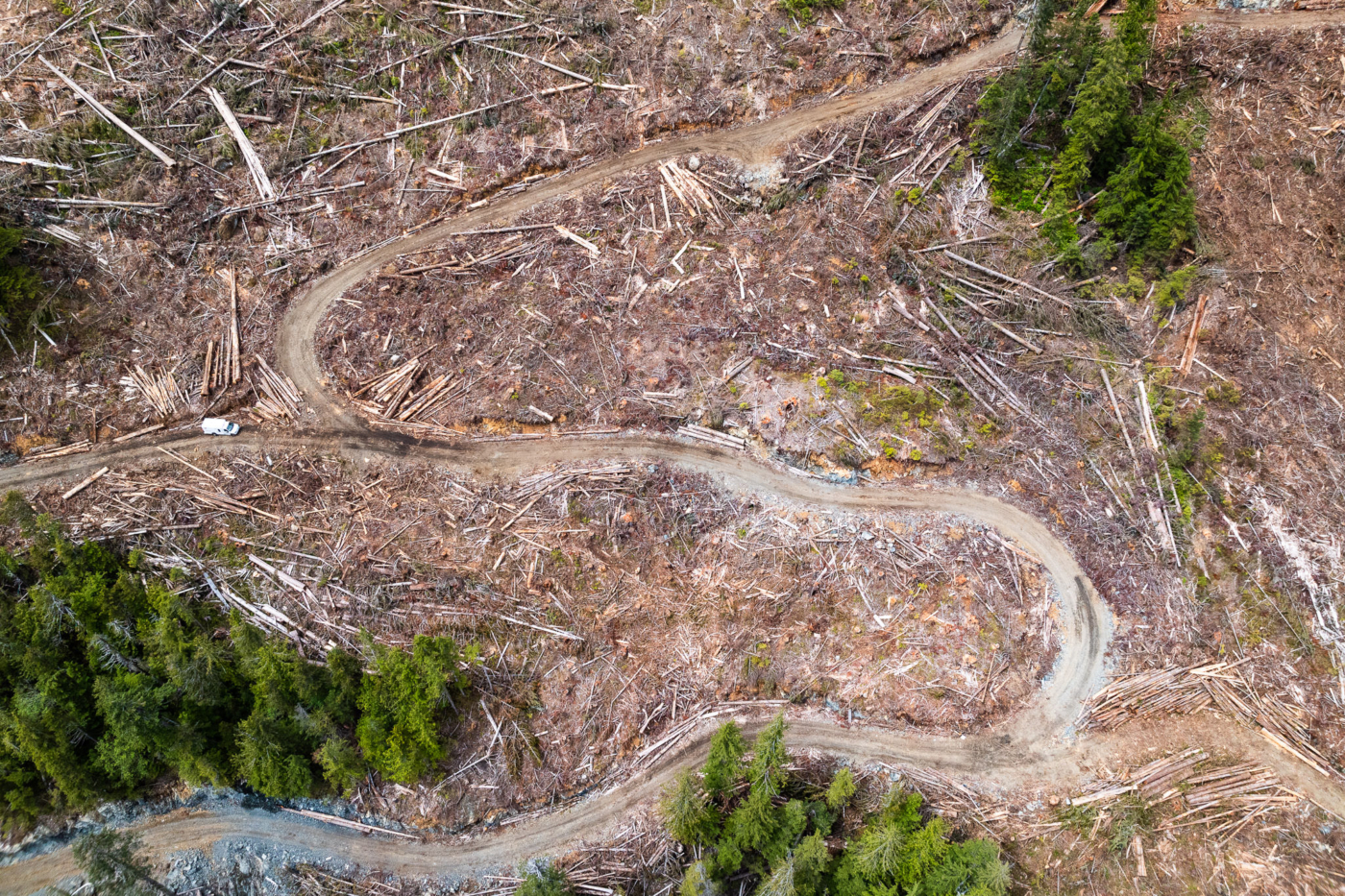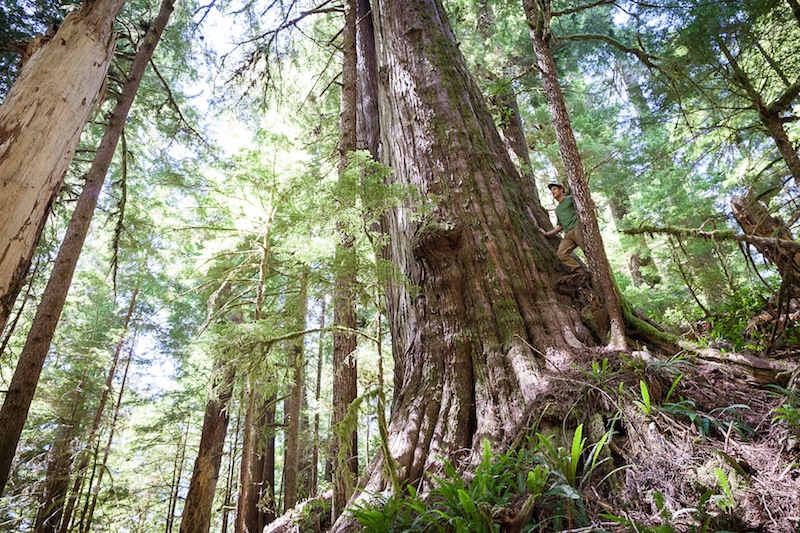 Oct 5 2015
Oct 5 2015How B.C.’s anti-logging activists are using drones to fight the ‘information war’
The famous Zen saying asks, ‘If a tree falls in the forest with no one there to hear it, does it make a sound?’ It basically means what is out of sight, is out of mind.
B.C. environmentalists — seeking to raise awareness against logging plans in Vancouver Island’s old-growth forests — think they have a solution for the issue posed in the saying.
“If we can’t bring B.C.’s four million people to the forests, we’re going to bring the forests to the people,” activist TJ Watt of the Ancient Forest Alliance told The Province.
Watt and other activists are using drone technology to shoot compelling, high-definition videos of “Canada’s grandest old-growth” rain forest near Port Renfrew.
They say the area is endangered because in mid-September the B.C. Forest Service granted the Surrey-based Teal-Jones Group a permit for helicopter logging in one of the eight “cutblock” areas the company wants to log in the area.
Capturing drone footage is part of a new “information war,” activists say, that is reigniting a decades-old battle in Vancouver Island’s Central Walbran Valley.
This is the “birthplace” of B.C.’s eco-resistance movement, an area where activists used tactics including blockades and high-publicity arrests to win a public relations battle against Victoria and forestry companies in the 1990s. Activists won concessions that established a conservation area and spread their anti-logging protests to other areas in B.C.
Watt says his new remote-controlled, GoPro-camera-equipped drone, which costs about $1,000, allows him to shoot images of massive trees in the Walbran Valley that were previously inaccessible because of steep, “brutal terrain.”
“Drones are a new tool in our tool box because for many people these trees might as well be on the moon,” Watt said.
“They were out of sight and mind for most. But the drones let us raise environmental awareness about these remote endangered areas where companies believe they can log with little scrutiny.”
The activists say that, despite the 16,000 hectares of forest conserved in the Carmanah Walbran Provincial Park in 1993, new logging plans from Teal-Jones in the area go too far.
“This is the grandest forest in Canada, all the record-breaking trees are in this area,” said Ken Wu of the Ancient Forest Alliance.
“Over 90 per cent of these forests in southern Vancouver Island have been logged, so the conservation victories of the 1990s are just a drop in the bucket of what was originally there.”
The Teal Jones Group, which specializes in global sales of timber and lumber products, successfully applied for a logging permit in cutblock 4424, one of the eight areas that activists want to protect.
Cutblock 4424 covers an area of about three hectares, and all eight cutblocks that the company wants to log cover about 20 hectares.
In efforts to document trees that stand to be lost, last week activists with the Wilderness Committee and Sierra Club B.C. claimed to have discovered a “remarkable old-growth forest grove,” within cutblock 4424.
“We knew there were impressive old-growth trees in this area, but we were really blown away once we got in and explored,” Torrance Coste of the Wilderness Committee said.
They say the “crown jewel” of the area is a western red cedar about three metres wide at the base, and possibly about 1,000 years old.
Watt says the hope is that the government will rescind the logging permit already granted to Teal Jones, or that the company will bow to public pressure and agree to withdraw its plans to log in the area.
If that doesn’t happen soon, activists warn some of the groups involved in the Walbran Valley protection campaign are prepared to use civil disobedience. One group, including one of the original 1990s Carmanah Walbran protesters, has already set up an “observation camp” in the area.
“I think the hope is that we don’t have to go there,” Watts said, when asked if activists’ threat of “escalation” and “intense battle” could mean protesters standing in the way of Teal Jones heli-logging crews.
A spokesman for the Ministry of Forests said the 3.2-hectare cutblock already approved for heli-logging would not be clear-cut, and in the other seven potential Teal Jones cutblocks the government is considering “Old Growth Management” areas that would protect “significant trees” and some of the recreational features and hiking trails in the area.
The Teal Jones Group did not respond to requests for comments for this story. In previous reports, Teal Jones managers said more than 7,000 hectares already has been conceded to environmentalists for parkland in the area now owned by the forestry company.

